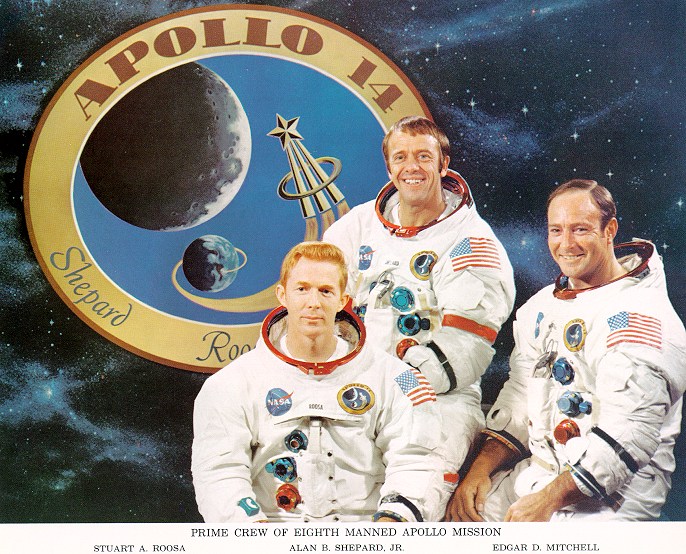Saturday, February 6, 2016
RIP Steely Eyed Missile Man
6th Man to set foot on the Moon dies
Apollo 14 astronaut Edgar Mitchell, who became the sixth man on the moon when he and Alan Shepard helped NASA recover from Apollo 13's "successful failure" and later devoted his life to exploring physics, the mind, and unexplained phenomena such as psychics and aliens, has died in Florida. He was 85.
Mitchell died Thursday night at a West Palm Beach hospice after a short illness, his daughter, Kimberly Mitchell, said. Mitchell's passing coincides with the 45th anniversary of the Apollo 14 mission from Jan. 31-Feb. 9, 1971.
He was the last surviving member of Apollo 14.
Edgar Dean Mitchell was born Sept. 17, 1930, in Hereford, Texas, and grew up working on his father's cattle ranch in New Mexico. He joined the Navy and got a doctorate from the Massachusetts Institute of Technology before joining NASA.
Mitchell's passion for exploration led him to become an astronaut, and he joined NASA in 1966. He helped design and test the lunar modules that first reached the moon in 1969 with Neil Armstrong and Buzz Aldrin.
Shepard, the first American in space in 1961, picked Mitchell to be on Apollo 13's three-person crew. But they were bumped to the next mission so Shepard would have more time to train.
Apollo 13's astronauts were nearly killed when an oxygen tank exploded as they neared the moon in 1970. They made it home safely, but never set foot on the moon. A year later, Shepard, Mitchell and Stu Roosa were the first crew to try again amid falling support for the moon missions from President Nixon, Congress and the public.
But Shepard and Mitchell almost didn't make it to the surface because of problems in the lunar module.
First, a loose piece of metal in a switch triggered an abort signal as they prepared to travel down to the moon. Had the descent engine been on at the time, the module would have automatically aborted the landing. They traced the problem's cause by tapping on the switch with a flashlight and a pen.
Computer programmers back home wrote instructions to get around the abort problem and Mitchell entered them with just minutes to spare. Shepard later wrote that Mitchell remained "Mr. Unflappable" during the scare.
Once they started for the surface, though, the landing radar wasn't working correctly. Shepard and Mitchell agreed to take the dangerous and rule-breaking step of landing without radar, but didn't have to when the device started working just in time.
It was the telepathy experiment on the ride home that would give Mitchell notoriety. Even before he left, he told The Associated Press about his fascination with psychic phenomena and extrasensory perception and that he thought humans weren't the only intelligent life in the universe.
Those interests almost got him removed from the mission, said Gene Cernan, the last man to walk on the moon and backup commander for Apollo 14. Cernan wrote in his autobiography that despite Mitchell's impeccable skills and vast intelligence, flight crew director Deke Slayton and Shepard were bothered with the fascination.
Mitchell claimed the experiment was a success, but most press reports dismissed him and some colleagues shunned him.
He left NASA in 1972 and founded the Institute of Noetic Sciences, which is dedicated to exploring the mysteries of the human mind and the universe. He also searched for ways to link the spirituality of religion with the hard facts of science.
In later years, he claimed the U.S. government covered up evidence that aliens had landed here.
"What I experienced during that three-day trip home was nothing short of an overwhelming sense of universal connectedness," Mitchell wrote in his 1996 autobiography. "It occurred to me that the molecules of my body and the molecules of the spacecraft itself were manufactured long ago in the furnace of one of the ancient stars that burned in the heavens about me."
In an emailed statement, NASA Administrator Charles Bolden called Mitchell, "one of the pioneers in space exploration on whose shoulders we now stand."
Subscribe to:
Post Comments (Atom)



No comments:
Post a Comment